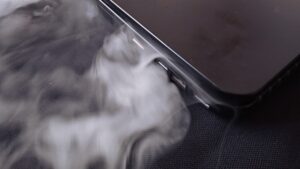Let’s talk again about the environment. We have seen efforts to save our environment by individuals, non-profits and companies. Everyone seems concerned with reducing our carbon footprint, is willing to give up straws and commit to regular recycling. Yet, still in the world today we have countless examples dumping, polluting, and contaminating. It happens even in the United States, and yes, even here in the Great State of Florida. With the global economy and so much business moving across state lines, we need laws that protect people, property and right to live and work in a clean and healthy environment. We need laws that penalize those who pollute so that wrongs can be made right and righting those wrongs can be deterrents to others.
Florida is a water state. We have over 1300 miles of coastline. We have more than 30,000 lakes. If you grew up in Florida, you are probably a water person. You love being on or by the water – you love beaching, boating, fishing, skiing. If you have moved to the Sunshine State or are visiting, you have adopted being a water person. That is why from the coast to the interior, from the surface down through the aquifer, Florida’s water must be protected.
What if someone told you that Florida laws regarding surface and groundwater do not protect you if you are injured or become sick from contaminated water? What if those same laws protect damage to real estate, personal property, and even lost business profits; but, if you are infected, injured, or become ill, you are out of luck? Would you believe it? Would you think that made any sense? That is the exact argument the defendant, their insurance companies, their big firm lawyers and the defense insurance industry tried to sell in one of our recent cases. We didn’t buy it. Neither did a Florida Judge and Jury. Neither did the Florida Supreme Court.
Our firm had obtained a favorable verdict for a tow truck driver who suffered chemical burns from contaminated surface and ground water. He was burned while cleaning up a tractor-trailer crash that scattered hundreds of car batteries. The sulfuric acid from the broken and burned up batteries spread throughout the scene.
After the verdict, the case made it all the way to the Supreme Court. We did everything in our power to get our client fair compensation for the devastating and lifelong injuries. As much as possible, we wanted to return him to some type of normal life. And just as important, we were determined to make sure the law was clarified to protect the environment, protect consumers and, make sure there is a legal remedy for any person harmed by contamination.
Our client, a tow truck driver, suffered injuries following a 2011 tractor-trailer crash. The tractor trailer driver lost control of his big rig, ran off the interstate, slammed into an embankment of trees, and burst into flames.
The tractor-trailer was carrying a load of car batteries when it crashed, and after firefighters pumped thousands of gallons of water onto the scene to extinguish the flames, highly corrosive battery acid mixed with the surface and ground water at the scene.
The tow truck driver spent around 15 hours removing the wreckage. His boots and pants were crumbling and falling apart the next day. The stinging sensations, at first, he believed were caused by fire ants he had seen at the scene. It didn’t take long to realize the flesh wounds, were the result of direct exposure to sulfuric acid. The chemicals caused a slow and progressive caustic burn on the tow truck driver’s ankles and legs. His skin began to peel, fall off, and then he developed large open wounds. His physical injuries worsened to the point of being unable to stand, bend, kneel or even walk. He certainly could not work. And, although he tried, he was never again able to work a full time job. His injuries led to a 5 year course of invasive treatment at three different burn centers and 37 skin grafts.
“It is a shame the defendant and their insurance companies refused to make good on the damage they caused. After years of litigation, two trials, and two appeals it came down to a very easy decision for the Florida Supreme Court. The Court unanimously decided that companies that pollute in Florida must be responsible for all the harm they create. Our client’s life was forever changed by this incident, and the defendant did everything they could to avoid taking responsibility” according to my trial partner, Jack Adams.
After a mistrial, a second trial resulting in a verdict for the tow truck driver, the verdict was appealed to the First District Court of Appeals, an intermediate appellate court. The First District Court reversed, taking away the verdict, holding the tow truck driver could not sue the trucking company for personal injuries under Florida’s Water Quality Assurance Act, a 1983 law related to groundwater quality and pollution. The First District ruling effectively vacated the jury’s $5.2 million verdict for the tow truck driver.
The Florida Supreme Court unanimously overturned the First District Court of Appeal’s decision on December 19, 2019. The Florida Supreme Court said it is wrong to apply the more restrictive definition of “damages” to the latter enacted law, which allows for individuals to sue for “all damages.” The “all damages” language of the 1983 act applies, not the more restrictive definition of the 1970 act that expressly excludes damaged to human beings. “The plain meaning of ‘all damages’ includes personal injury damages.” All damages means “all” damages, including injuries to people.
We never believed the Florida Legislature intended to allow persons or businesses harmed by polluters to recover for damages to crops, land, and profits; but not the injuries and damages to the people themselves. That just would not make any sense.
The Plaintiff is represented by Michael J. Damaso II and Jackson W. Adams of Wooten, Kimbrough, Damaso & Dennis, P.A. and Peter D. Webster of Carlton Fields.

A civil trial attorney with the firm Wooten, Kimbrough, Damaso & Dennis, P.A., Mr. Damaso concentrates on cases involving personal injury and wrongful deaths and solely represents individual victims and consumers. He takes his clients' cases personally and is committed to their best possible outcome. His strong sense of community has led to his support of numerous charities in the Orlando area.









